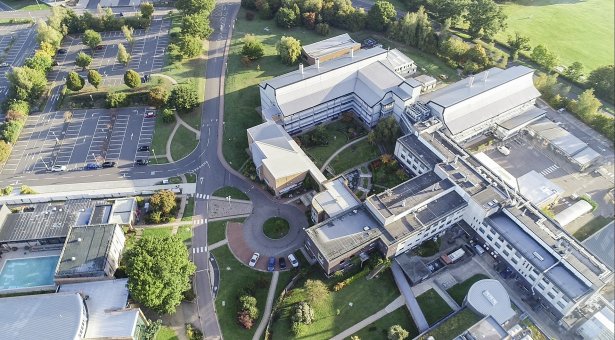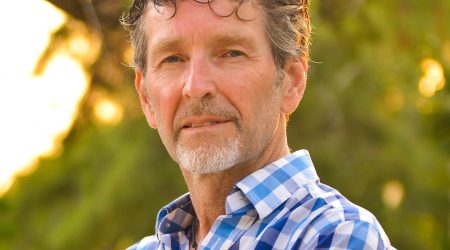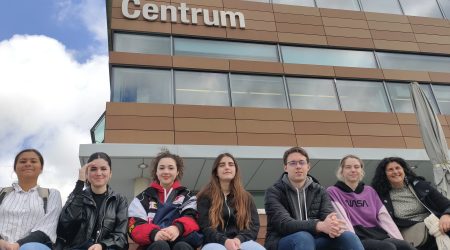Five new Project Leaders join the John Innes Centre

The John Innes Centre welcomes five new Project Leaders, in the departments of Crop Genetics and Cell and Developmental Biology.
Find out more about our new Project Leaders below.
Dr Christine Faulkner
Crop Genetics, Reducing Crop Losses (BIO ISP)
Before joining the John Innes Centre Crop Genetics department, Christine worked at Oxford Brookes University, where she was an Independent Research Fellow in Plant Cell Biology. She did her PhD at the University of Sydney (Australia), followed by postdocs at the University of Edinburgh, the John Innes Centre and The Sainsbury Laboratory.
Throughout that time she has studied how plant cells communicate with each other in various contexts, gaining expertise in proteomics, cell biology, virology, plasmodesmata, membrane trafficking and plant-pathogen interactions.
Her research at the John Innes Centre will remain focussed on intercellular communication, addressing questions of how plant cells communicate when under attack from a pathogen. In this context she is specifically interested in the mechanisms by which plasmodesmata open and close to allow direct connection between cells, and how cells and tissues co-ordinate their responses to pathogen threats.
Dr Brande Wulff
Crop Genetics, Reducing Crop Losses (BIO ISP)
Prior to joining the JIC Crop Genetics department, Brande worked as Research Manager of The Sainsbury Laboratory 2Blades Group (2010-2014), and as a postdoctoral fellow in the IBMCP-Valencia and IBMP-Strasbourg (with fellowships from EMBO and HFSP). He received his PhD from The Sainsbury Laboratory in 2002.
Brande is a molecular plant pathologist and geneticist. He is using genome complexity reduction and next generation sequencing on various structured populations of wheat to identify genes restricting the causal agents of wheat stem rust and Septoria tritici blotch, two major fungal diseases of wheat. His longterm aim is to use cloned genes to engineer durable resistance to these diseases in wheat.
Dr Yiliang Ding
Cell and Developmental Biology, Reducing Crop Losses (BIO ISP)
She studied for her PhD in Professor Giles Oldroyd’s lab here at the John Innes Centre (2005-2009), after which she completed a short-term visiting postdoc in the laboratory of Prof. David Lilley FRS in the University of Dundee. She has recently been awarded a BBSRC David Phillips Fellowship.
Yiliang developed the first two novel and powerful platforms to study RNA structure in vivo and across diverse species at both genome scale (Ding et al., 2014 Nature) and in individual RNAs (Kwok et al., 2013 Nature Communications). These breakthroughs have removed technological barriers and opened up new avenues for RNA biology research.
The Ding lab uses multidisciplinary knowledge and approaches in areas of Nucleic Acid Chemistry, RNA Biology and Bioinformatics. The research is focused on:
- Determining the role of RNA structure in the post-transcriptional regulation of gene expression including translation, polyadenylation, RNA splicing, RNA stability and RNA processing
- Exploring how RNA structures alter in response to environmental changes
- Developing new experimental and analytical approaches for revealing RNA structure and RNA-protein interactions
Dr Xiaoqi Feng
Cell and Developmental Biology, Growing our Future (GRO ISP)
Xiaoqi’s primary interest is in the sexual reproduction process of flowering plants with a strong focus on how the reproductive function and fate are installed and maintained precisely in the germlines.
She began pursuing this question during her DPhil studies with Professor Hugh Dickinson at the University of Oxford, finding that male meiocyte precursors and their neighbouring somatic cells derive from distinct lineages and regulate each other’s numbers via complex signalling. Realising that plant reproductive development was, at least in part, regulated by epigenetic pathways, she then pursued postdoctoral studies into the mechanism and function of DNA methylation reprogramming in Arabidopsis gametes and companion cells at UC Berkley with Professor Daniel Zilberman.
Through these experiences, she gained a comprehensive understanding of developmental and epigenetic mechanisms and methodology, and acquired bioinformatics skills to extract information from high-throughput genomic and epigenomic data.
Xiaoqi has recently been awarded a BBSRC David Phillips Fellowship. She joins the Department of Cell and Developmental Biology where she will aim to dissect the mechanisms by which genetic and epigenetic factors shape the function and fate determination of the male sexual lineage, using a combination of molecular, genetic, imaging, epigenetic and genomic approaches.
Revealing novel genetic and epigenetic regulators and their crosstalk is essential for our knowledge of sexual reproduction, and, at a more fundamental level, important for understanding how the development of a specific lineage of cells is tightly controlled in the context of a plastic environment of plant development.
Dr Steve Penfield
Crop Genetics, Growing our Future (GRO ISP)
Steve is a Royal Society University Research Fellow, a position he previously held at the University of York and the University of Exeter. He received his PhD from the John Innes Centre in 2001.
Steve is a seed biologist with an interest in understanding how environmental sensing in seeds generates seasonal plant behaviour.
His focus is on understanding how environmental information gathered by the mother plant is used to control progeny life history, via seed dormancy and germination timing.
He is using molecular, genetic and computational approaches to understand the role of seed behaviour in seasonal life history generation, and aims to understand how the mother plant signals temperature information to progeny, and the genetic basis of seedling emergence time in the field.
Seeds are also the most important source of human and animal nutrition on the planet, and seed sales are a central plank of the agro-economy. Optimising seed performance is therefore a key goal for the global seed industry, as well as for growers and food producers. Because seed vigour is highly contingent on the environmental conditions during seed production, climate change is a major confounding factor for the future maintenance of resilient high quality seed supply chains.
The lab will be devising and testing strategies to engineer crop seeds to be less sensitive to the seed production environment, using knowledge gained in model species and core capabilities at the NRP. Working with industrial partners he aims to take novel germplasm through to field trials and inclusion in plant breeding pipelines


